In the critically acclaimed film, With Difficulty Comes Ease, Uzoamaka Aniunoh embodies the role of Zainab, a recently widowed Muslim woman. She is stuck within the confines of her mother-in-law’s home and mandated to complete her Iddah (mourning period). Overwhelmed by financial difficulties and a secret pregnancy, a friendship becomes her ventilator.
Uzoamaka Aniunoh, the face of two 2024 Nollywood films, is not new to the game. She was a recurring cast member on MTV’s Shuga and starred in Nigeria’s 2024 Oscars submission Mami Wata. Although she has been part of demanding films, none stretched her as much as the 12-day shoot for With Difficulty Comes Ease. For most of the film, her face is an expression of the turmoil going on inside her. Uzoamaka admitted that the “tasking but rewarding” stress of the filming schedule helped her portray a beat-up Zainab. She was as exhausted as Zainab but kept going because she too found her own Rayyan in Korede Azeez, the film’s director.
Long before the film’s conception, Uzoamaka had been a fangirl of Korede Azeez. Azeez’s Halima’s Choice, a subset of Netflix’s African Folktales Reimagined anthology made her a fan. After seeing the episode, Uzoamaka knew she had to work with the director. When the request came in, she was elated. Her experience working with Azeez felt celestial. She speaks about her with the glee of a child running after an ice cream truck.
During our conversation, Uzoamaka also points out a liking for silly TV, citing Sex and The City as one of her favorites. While she enjoys these shows, the technical and creative aspect of the filming intrigues her. She believes in the collaborative nature of filmmaking. It is not surprising that she made her directorial debut last year with the short film, Love Language, which received an AMVCA nomination this year.
Speaking to Uzoamaka Aniunoh feels like reconnecting with an old friend. In the exclusive interview, we also touch on her Sundance to Tribeca journey as well as the recently released psychological thriller The Weekend. The actress tables her desire to star in a romcom soon and is looking forward to doing more applause-worthy projects.
(This interview has been edited for length and clarity and took place before the premiere of The Weekend.)
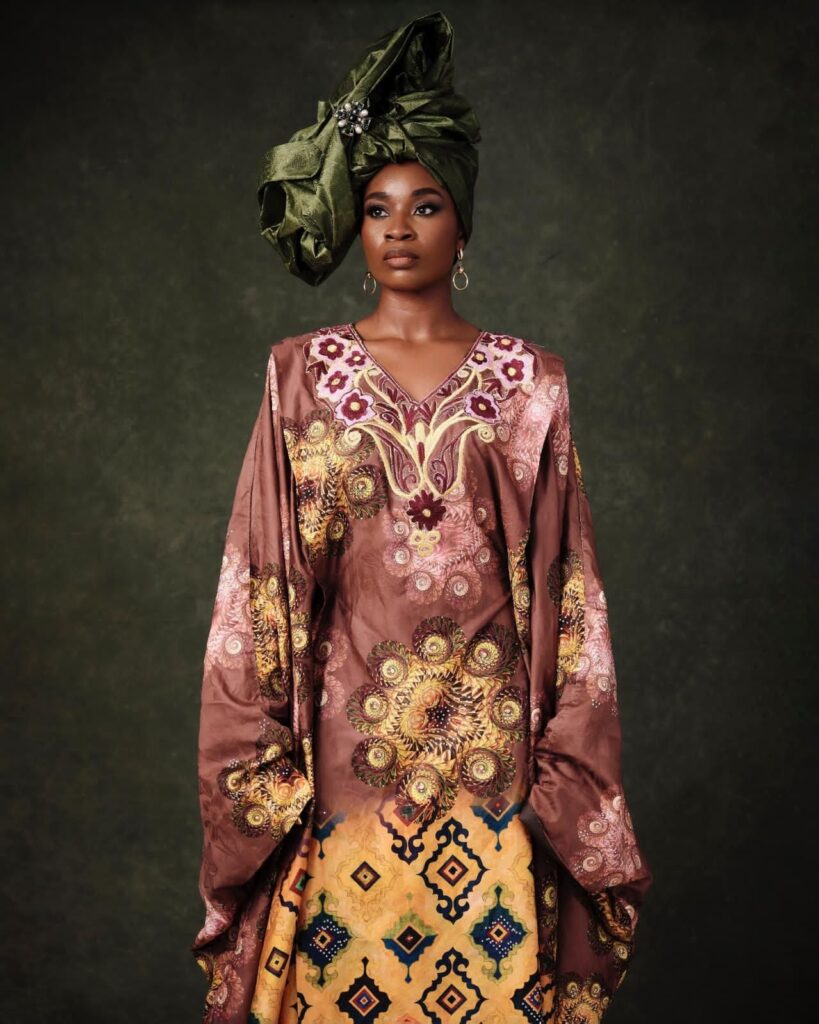
With Difficulty Comes Ease has been receiving a lot of positive reviews since its release in August. What attracted you to this film?
Several factors; one being that it was written by a woman. I always root for female filmmakers. Their outlook on everything is unique and much more nuanced. When a woman does something and wants me involved in it, it’s a no-brainer for me. Secondly, I read the story and again, it’s about this woman’s journey. And I’m like, okay, thank you, woman, for writing about this woman. I read Zainab’s story and empathized with her, loved her, understood her, felt for her, and wanted instantly to become her.
You sound like such a girl’s girl so it must have been quite the experience working with Korede Azeez on this film. What was that experience like?
I can write an entire novel about the amazingness of working with Korede Azeez. Interestingly, I had never heard of Korede Azeez until I watched Halima’s Choice on Netflix. I was so impressed, it was beautiful. The next day, I found her email address and wrote this long email saying well done and wishing her well.
I told her I was looking forward to the next big thing she does. And then she emailed me back saying “This is amazing because I had just told my producer to reach out to you for something that I’m working on. So, this thing that you want to see next will have you in it.” I was like please send me the thing and she sent me a draft of With Difficulty Comes Ease and I said, “Absolutely, yes. Let’s talk”. Before I knew it, I was in Abuja, and we were working together and bringing the film to life.
There are less than a handful of people that I would listen to if they had nothing and they just wanted to make a beautiful film. Korede Azeez is one of them. It was just amazing working with this woman. She was heavily pregnant whilst we were filming. But the kind of strength that she brought to With Difficulty Comes Ease was something. We shot a lot more than what you saw. But then, in editing, you get rid of so much. And all of that was shot in twelve days.
I was going to ask about that. Shooting a film in twelve days seems pretty difficult. How did you manage this?
It was so tasking. I do not recommend it. I will not do it again. I literally broke down at some point but Korede Azeez was there 100%. There was nothing Korede asked me to do that she did not do as well. If she said “Uzo, you need to walk down this road,” she would walk down the road with me. I walked down the road several times and I wasn’t pregnant and I was tired. And yet I looked and I’d see this woman walking with me.
It was just insane to see her be that present and still check on me. It inspired me because I was like you’re not tired, so I cannot be tired. It was fantastic working with her. She paid attention. She was also willing to hear me out about the character at every given point.
If I could be on all her projects and have her direct me every time, I would do it. There’s a freedom that comes with working with her.
Now, I feel like working with her. Going back to Zainab’s appearance. For most of the film, she wears a heavy demeanor. We see her smile maybe once or twice. Playing Zainab looked and felt emotionally tasking. How did you prepare for this role?
Honestly, I wish I could go on a story about how I had to go to the mountain and meet with a guru who imparted me. But that’s not the case.
When I read the script, I immediately connected with Zainab’s character—she was dealing with so much pain and sadness. I let the tiredness I was feeling in real life seep into my performance. I was really exhausted during the shoot, and when I’m tired, it shows on my face—I get puffy, with bags under my eyes.
Throughout the shoot, Zainab’s character was a reflection of my own feelings—tiredness, stress, and everything in between. When an actor is delivering a powerful line or an amazing scene, so much depends on the angle, the camera, the sound, the music, and the director’s presence. I leaned into what I was genuinely feeling, hoping it would show up on screen the way it felt in my head.
Hearing you talk about lighting, angles, and costume, it seems like you are concerned about the big picture. It’s almost like having a director’s eye. And I think that’s why it’s not surprising to me now that you made your directorial debut with the short film Love Language. What did it feel like holding the reins of a film for the first time?
I’m used to being in front of the camera alone and just worrying about myself and my performance. To also think about myself, my fellow actors and the production was something. I was very involved in the production design and costume. It was exciting. The best way to describe it is bigger. Bigger than me, bigger than anything that I had done. While the story that I told in Love Language is not personal, it was inspired by seeing my loved ones go through things and wondering, what could possibly be the deal breaker? It kind of mirrors Korede’s story in a way, that it is an inter-tribal relationship.
Working with my co-actor, Adam Garba, was amazing. Seeing something that I had been thinking about, something I wrote, come to life was surreal. I had intense conversations with my producer, Josh Olaolu, and my creative producer, Orire Nwani, about what I envisioned, and they helped shape it. The support from my friend Mudiaga, who backed me financially, made it all possible.
It’s incredible to see an idea that starts in your head come to life. It feels like a miracle. I believe creators need to understand the power they wield—thinking of something, sitting down, disciplining yourself, and writing it down can turn that thought into reality.
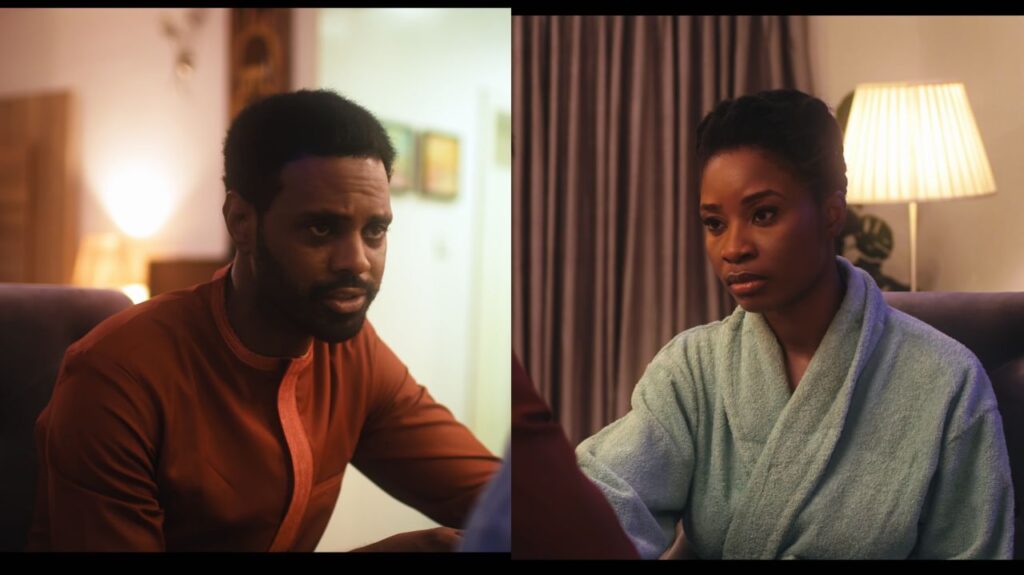
The discipline is very important
Oh my God, I know the struggle all too well. I think everyone should try writing something—a short story, a film—anything. It gives you immense respect for creators. When someone tells me they’ve written a book, I don’t care how good or bad it is. I know how hard it is to gather your thoughts, keep coming back to the writing, and finally finish it.
For my film, I started with an idea in my head, wrote it down, and sent it to my first readers for feedback. After multiple drafts, we had a shooting draft. When someone gave me money to make the film, I was terrified. My friend Josh, the producer, pushed me to go ahead. We began pre-production, finding locations and setting everything up—it felt surreal. Without Josh, I might have quit out of fear.
During the process, I finally understood why people sometimes abandon their dreams—they get so close and then doubt themselves. I felt that many times while making Love Language. Initially, I was determined to shoot it all in one take, but it wasn’t feasible with our budget. So, we compromised with long takes and minimal cuts. It was challenging, but it worked, and I was thrilled to collaborate with people who understood my vision.
It feels collaborative
That’s what I love about film, telling the story, bringing the story to life, seeing it build brick by brick until it becomes a whole thing. It’s like birthing a child. You’re staring at this child like, what are you? And then you see the child growing and becoming something right in front of you. It’s just amazing. I look forward to telling more stories.
You still sound very stunned by the work you did. I’m guessing it was even more surreal when the film received an AMVCA nomination. How did that feel? Did you think the film was going to receive a nomination?
To be honest, I did think about it. We made a fantastic film.
That’s so humble.
I’m sorry but we made a great film.
I like that. Believe in your sauce.
When you know you’ve done good work, just acknowledge that you know that you’ve done good work. There’s no point knowing and then hiding behind humility. Please own your brilliance. So, with Love Language and AMVCA, I submitted for consideration. I hoped it would be nominated. They said they wanted to watch the entire thing and I sent it in. If you watch Love Language from the beginning to the end, it’s just impossible to not love it.
I submitted it and forgot completely about it. When the announcement came, I was at my friend’s house. She put the announcement on and in like two minutes, I heard Love Language. It felt good to be recognized in that way. I’m looking forward to making more films that will be submitted and will win.
I haven’t seen the film yet, so I’m just going to trust your word. But I would like to ask when Love Language will get a public release yet?
We are working on it. It’s a short film, so it’s quite tricky. There are limited spaces for it. We are looking at the options we have and the possibility of even making a feature film out of it.
You will be needing discipline once again.
Yes. But I’ve actually done the work in terms of writing it.
The tea. We’re getting the tea.
I’ve written it and it’s great. We have come to a good place with the writing. We are considering what the options are in terms of, like, making a feature film. And when that happens, I’ll be the happiest filmmaker in the world because I want people to watch Love Language.
I also want to watch Love Language. You have made huge strides directing your first film, but prior to this, you were making headlines in your acting career, especially with Mami Wata which made it to Sundance. Can you talk to me a bit about the Mami Wata project?
We shot in the Benin Republic and I didn’t like being away from home. It was tedious being so far away and doing the project. But it was great. I loved how epic it was. I really enjoyed filming stuff that’s not super modern.
Was that what drew you to the project?
I wouldn’t say that’s what drew me. I think what drew me to the project was CJ. The fact that it was CJ. I really enjoyed CJ’s works at festivals. I remember watching Hello, Rain and then walking up to CJ and saying I look forward to working with you and I think he said the same thing. So, when they reached out to me for Mami Wata, it felt right. I got the call a week before Christmas. But it was great being in the company of people like Kelechi Udegbe. He made my stay in the Benin Republic bearable. I’m just happy that Mami Wata is going everywhere and opening doors for the people who worked on it. It premiered at Sundance. It was nominated for the Spirit Awards and represented Nigeria for Best International Feature Film at the Oscars. Saying all these things just does something for your resume, I think it’s great and I’m thankful.
Now, to the most recent project, The Weekend, which opens in Nigerian cinemas on the 30th of August. You got to work with Daniel Oriahi. What did that collaboration look like?
Before auditioning for them, I looked forward to working with Trino Studios just because of the quality of their work. And I wanted to work with Daniel Oriahi because I had watched Taxi Driver: Oko Ashewo and Sylvia. Initially, it was a different director. I auditioned for them and was cast. I didn’t hear from them and just carried on with my work. Then, they sent me an email saying to come audition for the same thing. And I was like, “My goodness, what is this?” I auditioned, and I got cast. Why are you calling me back to audition again? When I got there, I learned that the director had changed and it was now Daniel Oriahi. I went and auditioned and after a while, they reached out and said I booked the role. I was super happy because it’s Trino Studios and now Daniel Oriahi. Then, I heard I was working with Bucci Franklin, and I was like, yeah, God is good.
Working on The Weekend was great. I was also surrounded by people like Gloria Anozie, Meg Otanwa, Keppy Ekpenyong, and Auntie Grace. Director Oriahi knows exactly what he wants. Seeing him on set and collaborating with him was brilliant. I had a lot of fun working on this set, being surrounded by these people, being helped by these people, because there were times I wasn’t sure what I was doing. I haven’t seen it. I’m very nervous about watching it with people on the 30th. It’s the thing about translating again. I’m sure Daniel is sick of me because I kept asking, “is it translating on screen?” He was like, “Úzo. Uzo, just process. Just process.” He likes the word process. Acting is a lot of blind trust.
I like the phrase “blind trust.”
You have to trust that what you’re doing is working; that what you’re thinking is working, that what you’re feeling is enough; and trusting the director as well, that what they’re seeing on the screen is what they want and believing that they’re honest. And that when they say we can move on, it’s because you’ve done great work as opposed to we have to move on because there’s a lot.
The Weekend went to Tribeca and Mami Wata premiered at Sundance. Can you speak briefly about this journey?
It was amazing. I love festivals. The audiences at festivals make me happy. They get me. They are happy with the kinds of films that I love. They don’t mind ‘slow’. They don’t mind quiet. They don’t mind certain things other people consider boring. And just to be seen for your work, to be seen on such a large scale, is something. Different people from all over the world come together for one thing: film. That’s just amazing. It makes me happy when I hear that a film that I’m involved in is traveling; it’s more eyes, more people. I’m looking to be in a film or hopefully make one that goes to Cannes. I love Cannes. When I go to Cannes, people will not ‘hear word’.
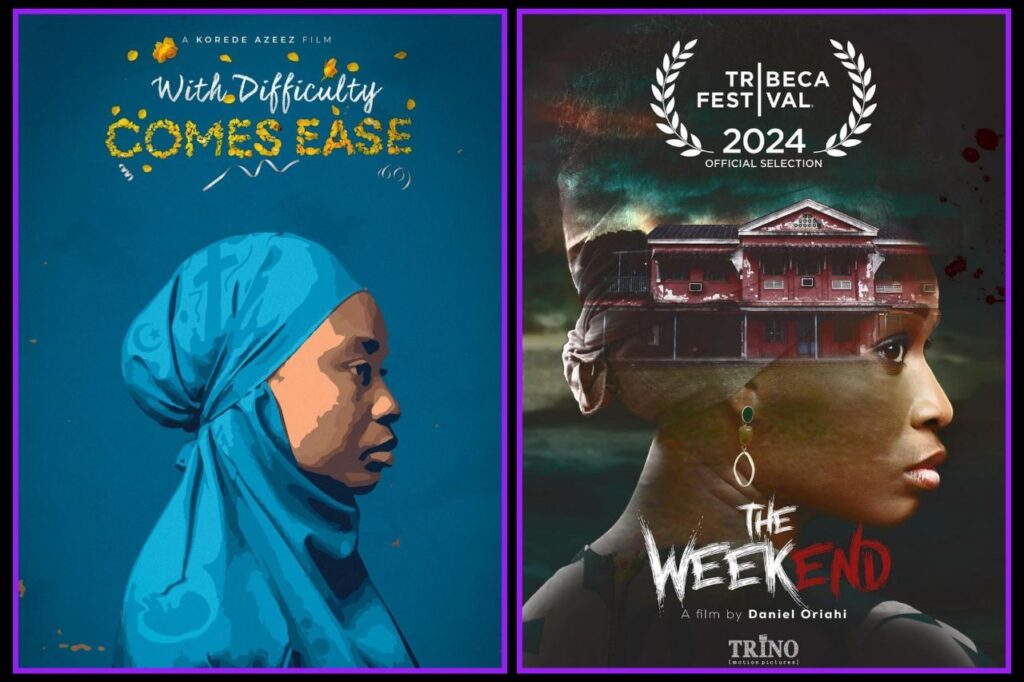
You should not let us hear word. From Mami Wata to With Difficulty Comes Ease, these characters are quite intense. Are you open to playing less intense characters? Is there a comedy or romcom on the horizon?
Yes, I think romantic comedy. I don’t know about full-on comedy. I don’t know that I’m that funny. You have to be funny. But, like, if it’s in the writing, I guess I can. But yes, to rom-coms. Oh, my God, yes. I’ll be so happy. I’m putting it out there, for anybody who’s going to write this romantic comedy with me in mind, I promise you that I will devour it. I would love to play a goofy or awkward, romantic lead in a film where her hair is so beautiful and it’s her own hair, and she’s still sexy, romantic, and funny.
I don’t like the portrayal of our hair in films. Why did she have natural hair when she was suffering? And then, she becomes luxurious and has straight hair or a Brazilian. I don’t mind Brazilian hair. I don’t mind wigs, I just don’t like the portrayal of our hair.
I get you. The woman at the salon keeps asking me when I would relax my hair like there is something wrong with my natural hair.
I think representation matters. Media is so powerful and stories are important. It would be great to see a character own her hair on screen as opposed to when you have money. But I would love to do fun stuff. I remember when we were shooting With Difficulty Comes Ease, Korede was like, “Don’t worry. I will write a happy thing for you” and I was like “You better”. So, yes, I’m looking forward to doing a happy, easy story.
I do love intense stories, I’m not going to lie about it. Whenever I read something and the character is intense, I’m drawn to it. But it would be amazing to read a light-hearted, beautiful screenplay as well. I would like to be very happy on set.
If nobody writes that romcom for you, I will. Finally, what’s next for Uzoamaka Aniunoh?
When people say, what’s next? I feel like it’s such a heavy question. The expectation is usually my next thing, “I’m going to be on Black Panther. President Obama reached out to me because he watched my film. So now I’m going to America to talk to him about my work.” There’s an expectation. It’s quite loaded. The next thing is to continue working. To continue doing the best that I possibly can, continue pulling myself up and putting in the work, and disciplining myself, to sit down and do the work. So much of our potential is not reached because we don’t sit down and discipline ourselves. Discipline yourself. It’s hard. I know that because, the screenplay that I’ve just written, I literally bled the screenplay. I’m not joking. I bled it out. I sat down and I bled the thing out.
I want to be able to outdo myself; and do the work that I enjoy with people. To work constantly as well; not overwork, but just be booked. You know, the hope is to be booked, always doing something, even if it’s for yourself. Do projects that mean something that does something for an audience. So, the next thing for me is to continue doing more and more and hopefully have more conversations about future projects that I do.
Share your thoughts in the comments section or on our social media accounts.
Keep track of upcoming films and TV shows on your Google calendar.

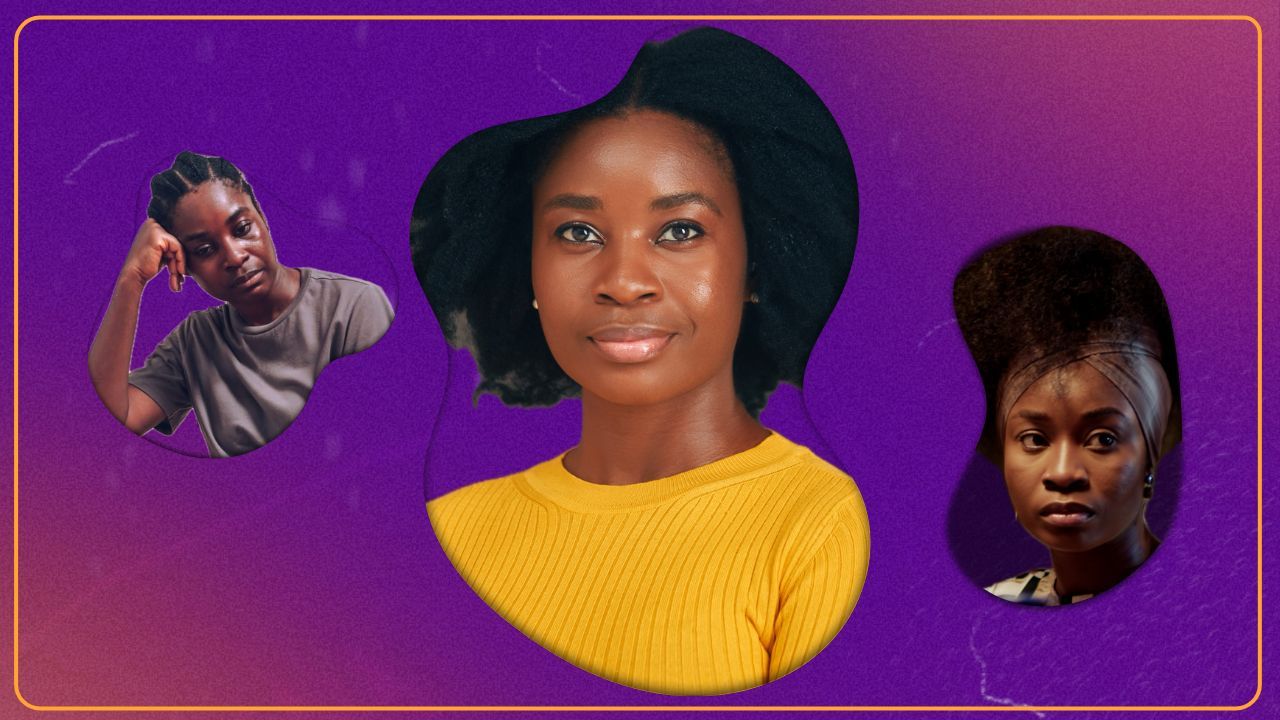
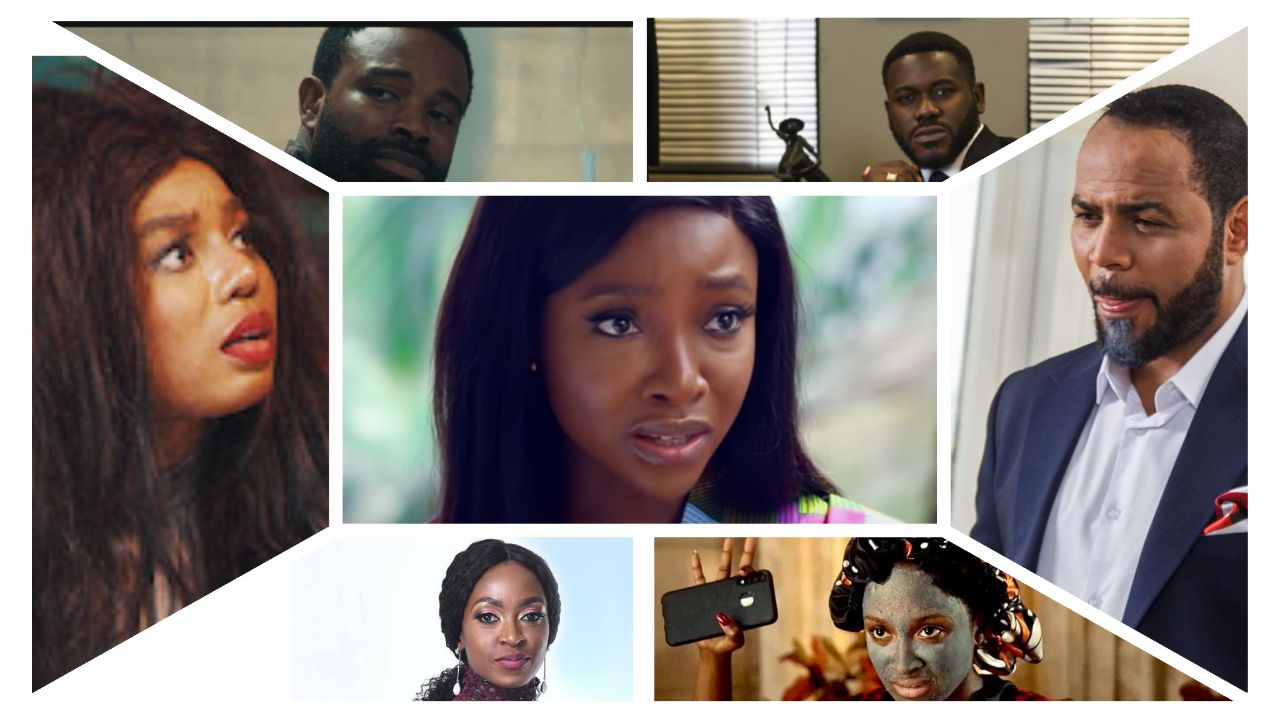
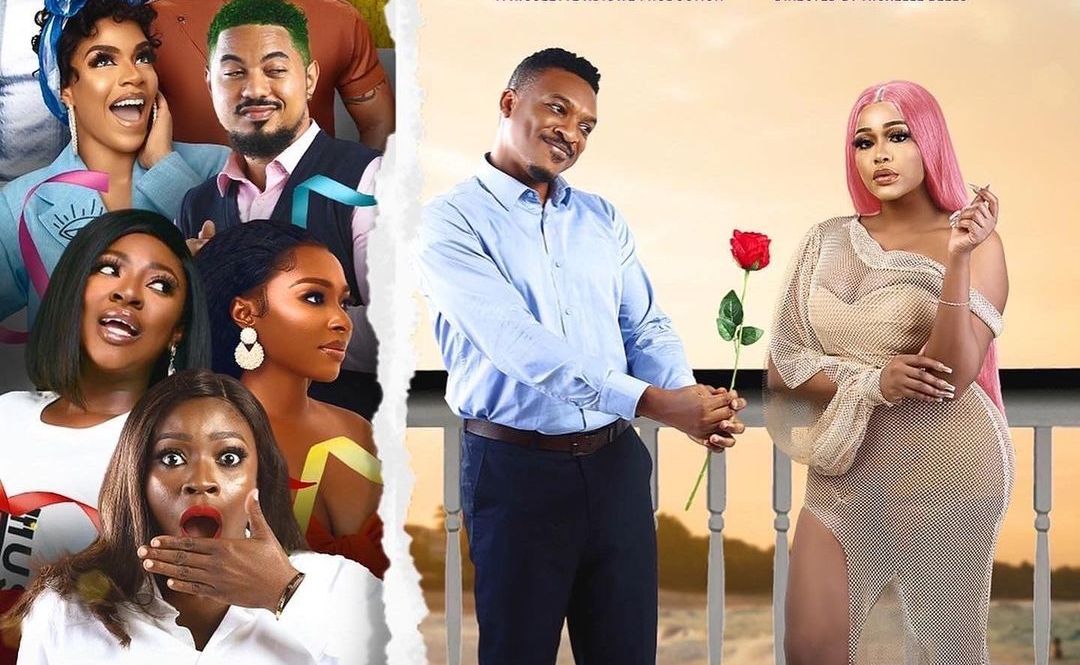

1 Comment